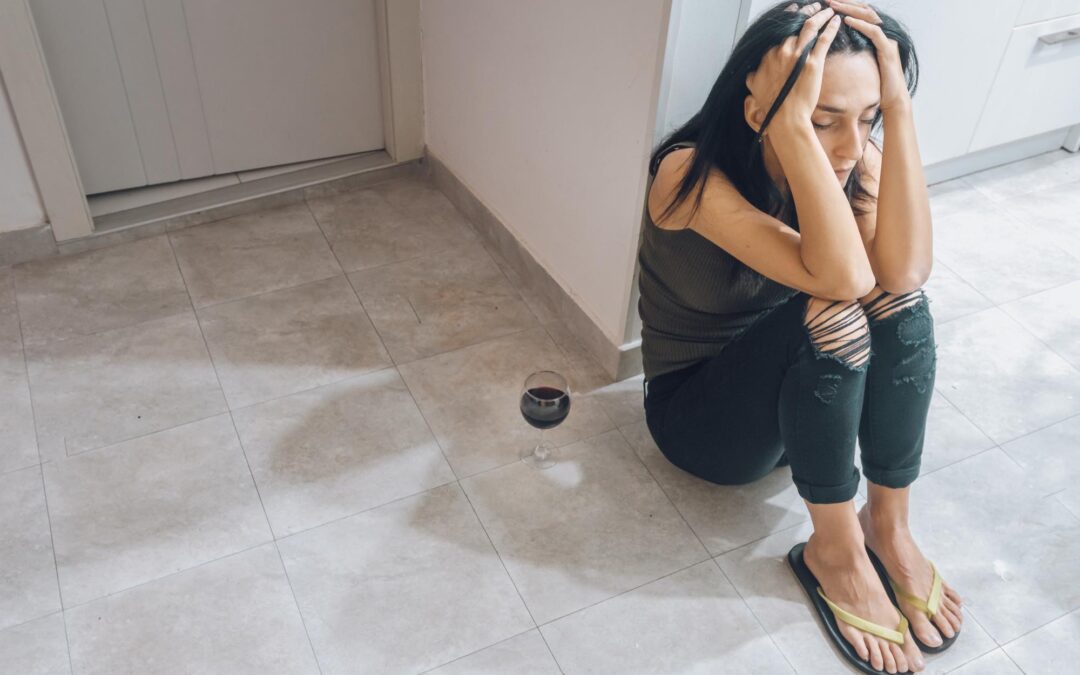Do I Have Signs of Substance Abuse?
Understanding Substance Abuse
Substance abuse refers to a pattern of using psychoactive substances in ways that cause significant problems in your life. This goes beyond having a drink at dinner or taking prescribed medication as directed. Substance abuse occurs when the use of alcohol, drugs, or other substances begins to interfere with your health, relationships, work, or daily responsibilities.
The line between casual use and abuse can feel blurry at times. Casual use typically means someone can take or leave a substance without it affecting their life negatively. Abuse, on the other hand, involves a loss of control—continuing to use despite knowing it’s causing harm, or finding yourself unable to stop even when you want to.
What Are Psychoactive Substances?
Psychoactive substances are any chemicals that alter your brain function, affecting mood, perception, consciousness, or behavior. These fall into several categories:
- Alcohol – one of the most commonly abused substances, despite being legal
- Illicit drugs – including cocaine, heroin, methamphetamine, and marijuana (where not legalized)
- Prescription medications – such as opioid painkillers, benzodiazepines, and stimulants like Adderall
- Over-the-counter medications – when misused, products like cough syrup can become substances of abuse
The Concept of Harmful Use
The concept of harmful use captures what happens when substance consumption creates real risks to your physical or mental health. This might look like drinking to the point of blackouts, using drugs in dangerous situations, or taking medications in ways not prescribed. Harmful use doesn’t always mean addiction, but it’s a serious warning sign that deserves attention and care.
Common Signs of Substance Abuse You Should Know About
Recognizing the warning signs of substance Abuse early can make all the difference in getting help before substance use spirals into a more serious problem. While everyone’s experience is unique, certain patterns tend to emerge when substance use crosses the line from occasional to problematic.
Cravings and Loss of Control
One of the most telling indicators is experiencing intense cravings—those powerful urges to use that feel impossible to resist. You might find yourself thinking about the substance constantly, planning your day around when you can use next, or feeling anxious when you don’t have access to it. Another red flag is continuing to use despite knowing it’s causing problems in your relationships, work, or health. When you’ve tried to cut back or stop but haven’t been able to, that loss of control signals something deeper at play.
Physical Signs of Substance Abuse
Your body often tells the story before anything else. Common physical signs of substance abuse include:
- Bloodshot or glassy eyes with dilated or constricted pupils
- Unexplained weight loss or gain
- Frequent nosebleeds (particularly with snorted substances)
- Changes in sleep patterns—either insomnia or excessive sleeping
- Poor hygiene or neglecting personal appearance
- Tremors, slurred speech, or impaired coordination
- Unusual smells on breath, body, or clothing
You might also notice developing tolerance, needing more of the substance to achieve the same effect, or experiencing withdrawal symptoms like nausea, sweating, shaking, or irritability when you haven’t used.
It’s important to note that these physical signs can sometimes overlap with symptoms of eating disorders, which often co-occur with substance abuse.
Behavioral Signs
The way substance use affects your daily life speaks volumes. Behavioral signs often include missing work or school, abandoning hobbies you once loved, or pulling away from friends and family.
In high-pressure professions, these behavioral changes can be even more pronounced as individuals may resort to substance abuse as a coping mechanism. It’s vital to recognize the signs of substance abuse in such high-pressure professions, where the stakes are higher and help is often needed urgently.
You might find yourself taking risks you wouldn’t normally take—driving under the influence, spending money you don’t have, or putting yourself in dangerous situations. Secretive behavior, lying about use, or becoming defensive when someone expresses concern are also common patterns that suggest a deeper struggle.
Managing sleep issues during recovery from substance abuse can also be a significant challenge. Understanding how to manage sleep during recovery can greatly aid in the healing process.
Finally, it’s crucial to understand that substance abuse can lead to various legal issues, adding another layer of complexity to an already challenging situation. Recognizing these

Recognizing Substance-Specific Signs: A Closer Look at Different Drugs
Different substances leave different fingerprints. While general warning signs can point toward a problem, understanding alcohol abuse signs, opioid abuse symptoms, stimulant abuse indicators, club drugs effects, and inhalant dangers helps paint a clearer picture of what might be happening with someone you care about—or even yourself.
Alcohol: Beyond the Social Drink
Alcohol remains one of the most commonly abused substances, partly because it’s legal and socially accepted. The line between casual drinking and abuse can blur quickly:
- Binge drinking patterns that lead to blackouts or significant memory gaps about events that occurred while drinking
- Legal issues stemming from DUIs, public intoxication, or alcohol-related altercations
- Drinking alone or hiding alcohol consumption from family and friends
- Experiencing withdrawal symptoms like shaking, sweating, or nausea when not drinking
- Prioritizing drinking over work, family obligations, or personal health
Opioids: The Silent Epidemic
Whether prescription painkillers or illicit drugs like heroin, opioid abuse symptoms can be particularly concerning:
- Persistent drowsiness or “nodding off” during normal activities or conversations
- Constricted (pinpoint) pupils that don’t respond normally to light changes
- Slurred speech and impaired coordination
- Finding empty prescription bottles, syringes, or burned spoons
- Wearing long sleeves even in warm weather to hide track marks
- Frequent flu-like symptoms as the body cycles through withdrawal
Stimulants: The Highs and Crashes
Stimulant abuse indicators—whether cocaine, methamphetamine, or prescription medications like Adderall—create distinctive patterns:
- Periods of intense energy and hyperactivity followed by extreme exhaustion
- Rapid or rambling speech patterns
- Dilated pupils and increased body temperature
- Severe restlessness, irritability, or aggressive behavior
- Extreme paranoia, anxiety, or panic attacks when the drug wears off
- Significant weight loss and decreased appetite
- Repetitive behaviors or obsessive focus on tasks
Club Drugs: The Party’s Dark Side
Substances like MDMA (ecstasy), GHB, or ketamine produce unique club drugs effects:
- Unusual displays of affection or emotional openness toward strangers
- Erratic mood swings or unpredictable behavior
- Visual or auditory hallucinations
- Memory problems or confusion about recent events
- Jaw clenching or teeth grinding
- Dehydration and overheating at social events
Inhalants: Hidden in Plain Sight
Inhalant dangers are often overlooked because these substances are household items. Watch for:
- Frequent headaches or dizziness without clear cause
- Chemical odors on breath, clothing, or in their space
- Paint or stain marks around the mouth or nose
- Disorientation or slurred speech
- Empty aerosol cans, cleaning products, or glue containers
- Nausea or loss of appetite
The Role of Mental Health in Developing Substance Use Disorder
Mental health and substance use are closely connected. Mental health co-occurrence—when conditions like depression, anxiety, PTSD, or bipolar disorder exist alongside substance use disorder—affects many people seeking treatment.
For example:
- Someone with untreated anxiety might turn to alcohol for relief.
- Another person dealing with trauma symptoms could become dependent on prescription medications.
This relationship goes both ways: substance use can trigger or worsen mental health symptoms, just as mental health challenges can make someone more vulnerable to developing substance use patterns.
Understanding this connection is crucial when assessing your relationship with substances. By addressing both mental health and substance use issues together, you lay a stronger groundwork for long-lasting recovery.
Untreated Substance Abuse: Risks You Should Be Aware Of!
When substance abuse continues without intervention, the stakes become increasingly serious. Understanding these risks isn’t meant to frighten you—it’s about recognizing why reaching out for help matters so much.
1. Overdose Risks
Overdose risks represent one of the most immediate dangers. As tolerance builds, people often need larger amounts to achieve the same effect, pushing their bodies beyond safe limits. An overdose can happen suddenly, causing respiratory failure, cardiac arrest, or irreversible brain damage. Some individuals survive overdoses but face lifelong complications affecting their cognitive function, mobility, or organ health.
2. Infections from Drug Use
Infections from drug use pose another significant threat, particularly for those who inject substances. Sharing needles or using non-sterile equipment creates pathways for bloodborne diseases like HIV/AIDS and hepatitis B and C. These infections can remain dormant for years, silently damaging the liver and immune system before symptoms appear. Even non-injection drug use can increase infection risk through compromised judgment leading to unsafe practices.
3. Mental Health Disorders Linked to Addiction
The connection between substance abuse and mental health disorders linked to addiction creates a challenging cycle. Untreated substance use can trigger or intensify conditions like depression, anxiety disorders, and psychosis. Someone might start using substances to cope with difficult emotions, only to find those same emotions becoming more overwhelming. This bidirectional relationship makes professional treatment essential for addressing both aspects simultaneously.
4. Physical Health Deterioration
Furthermore, untreated substance abuse can lead to severe physical health deterioration. This could manifest as chronic illnesses such as heart disease, liver damage, or respiratory problems depending on the substance used. The neglect of physical health during periods of substance abuse often results in conditions that require extensive medical intervention and long-term management.
Seeking Help for Substance Abuse: Overcoming Barriers and Finding Supportive Treatment Options
Recognizing that you might need help is one of the bravest steps you can take. Denial often whispers that things aren’t “that bad” or that you can handle it on your own. This internal resistance is a common part of addiction itself, not a character flaw. When you find yourself relating to the signs discussed in this guide, that awareness is already a powerful first move toward healing.
Common barriers to seeking addiction treatment
- Fear of judgment from family, friends, or healthcare providers
- Concerns about cost and whether insurance will cover treatment
- Worry about taking time away from work or family responsibilities
- Uncertainty about where to start or which treatment approach is right
- Past negative experiences with healthcare systems
- Stigma and shame surrounding addiction
The truth is that compassionate, evidence-based support exists at every stage of your journey. Treatment centers like Advanced Addiction Center in Medford, Massachusetts offer flexible options designed around your life. Whether you need intensive outpatient programs, evening sessions that allow you to maintain daily routines, or comprehensive dual diagnosis care that addresses both substance use and mental health concerns, there’s a path forward that fits your unique situation.
You don’t have to navigate this alone. Professional guidance can help you understand “Do I Have Signs of Substance Abuse? A Guide” and create a personalized roadmap toward recovery.
Taking the First Step Toward Recovery!
If the signs discussed in this guide feel familiar, you’re not alone—and reaching out for help is one of the bravest decisions you can make. Your addiction recovery journey begins with a simple phone call or conversation that opens the door to personalized care designed specifically for you.
At Advanced Addiction Center in Medford, Massachusetts, we understand that every person’s path is different. That’s why our team creates individualized treatment plans that address your unique circumstances, whether you need flexible outpatient support, intensive therapy, or specialized care for co-occurring mental health conditions.
You don’t have to figure this out on your own. Our compassionate professionals are ready to:
- Conduct a thorough assessment of your needs
- Discuss treatment options that fit your lifestyle and schedule
- Connect you with evidence-based therapies that work
- Support you through every phase of healing
Call (781) 560-6067 today to speak with someone who truly understands. Your healthier, more fulfilling life is waiting—and we’re here to help you get there.








